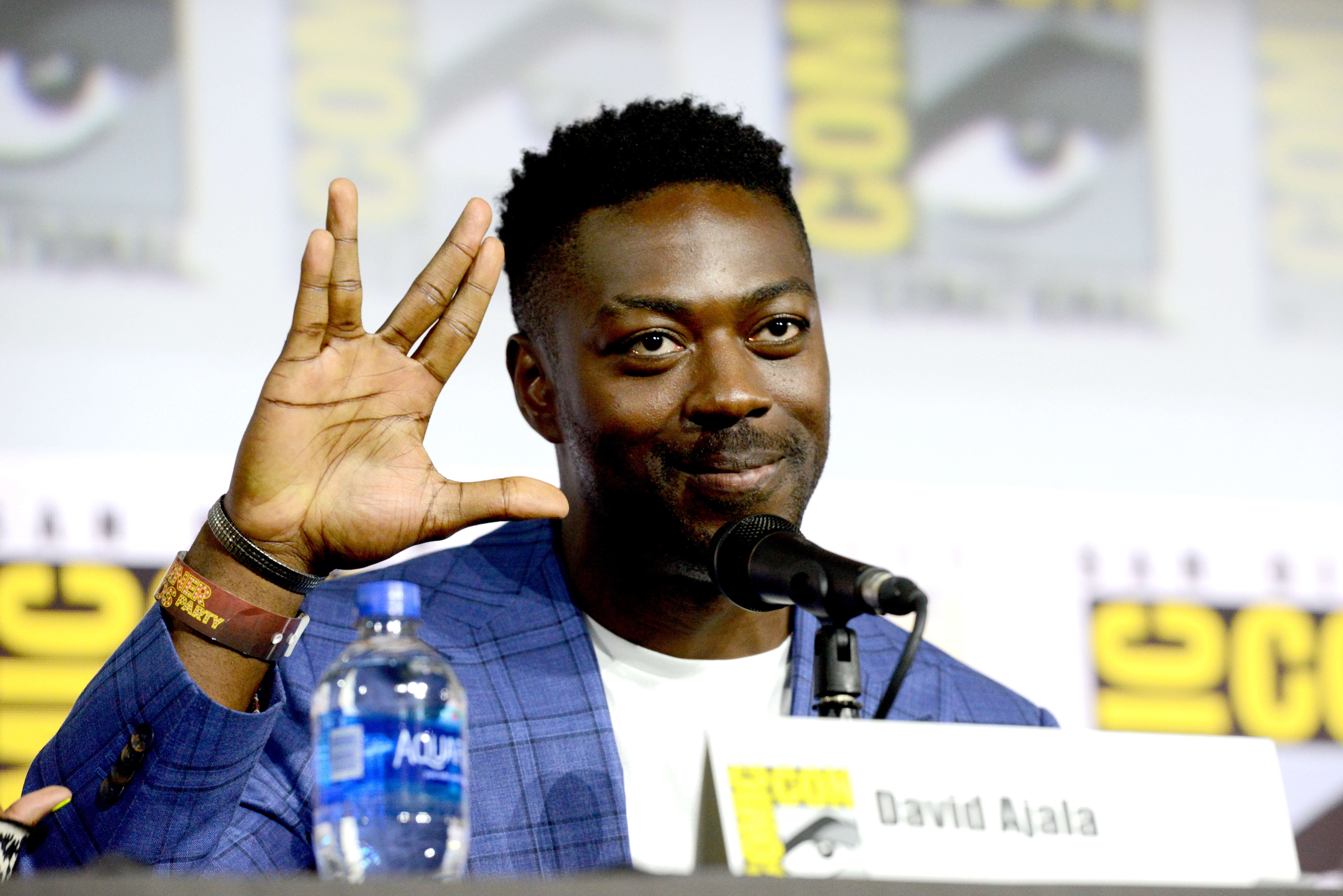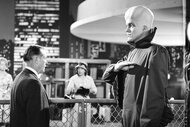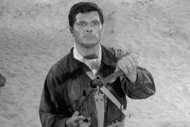Create a free profile to get unlimited access to exclusive videos, sweepstakes, and more!
Star Trek: Discovery's David Ajala is bridging the gap between new and old Trek

Anticipation for Star Trek: Discovery’s third season continues to boil over as we draw closer to the Oct. 15 premiere. While this may be nothing new to most of the cast and crew, for David Ajala, who plays newcomer Cleveland Booker, one would think this week’s premiere is uncharted territory. But Ajala is no stranger to lending his acting and voiceover talents to hotly-anticipated genre projects like Black Mirror and Mass Effect, among others. Now, he's ready to plunge headfirst into a show rife with decades of meta-culture and enough controversies to shake a tricorder at.
“I just love action, characters, and stories,” Ajala tells SYFY WIRE ahead of the Discovery Season 3 premiere. “I think there was just a period in my career, the past four years or so, where naturally my work just gravitates more toward the science fiction world.
“There is something quite exciting about working in [the science fiction genre],” he continues. “I think it’s just the freedom that one can have to create stories in a world that doesn’t exist just yet. There is something about that I find quite appealing.”
The freedom to create new stories is one of the major selling points of the upcoming season. When we last left the Discovery’s crew, they had made the decision to follow Michael Burnham (Sonequa Martin-Green) to the distant future. If the third season does, in fact, pick up where the second season left off, it will be the most far-flung glimpse of Star Trek’s future outside the first season of Star Trek: Picard.
This course correction, from a Discovery set in the pre-Original Series time to one centuries after the events of Star Trek Nemesis, leaves the door wide open for new storytelling possibilities untethered from established mythology.
An alliance between the Klingon and Ferengi? Sure. A galaxy under the thumb of a Kazon empire? Why not? And no matter what direction the writers choose to go, Ajala’s character, who is indigenous to this new future, will serve as a sort of guide, bridging new and old.
“It’s going to be fun to see characters and species from previous iterations of Star Trek, but 1,000 years in the future, that’s going to be fun,” Ajala says. “The technology is a big deal, my character’s spaceship is incredible, aesthetically, and in terms of what it can do. Specifically, in Episode 7, there is a moment where you see how incredible technology can be.”
While not a lifelong Star Trek fan, Ajala says that he quickly fell in love with it, and could see why it has managed to garner the number of fans it has over the decades.
“I’m very aware of Star Trek, I’m not the biggest fan because it was not something that I watched,” Ajala admits. “I did get into watching Star Trek even more because I worked with Sir Patrick Stewart [at the Royal Shakespeare Company]... and he became my introduction in checking out Star Trek.”
What struck Ajala most was the series’ signature optimism. “I remember watching it and just loving the vibe of it,” he says, “loving how everyone’s superpower was intelligence. There was just something really cool about that, it wasn’t smug, it was like you’re encouraged to be curious enough to understand and explore space. There is something quite wonderful about that...being smart is encouraged. It’s almost like [in real life] being the smart kid isn’t cool, in Star Trek being smart is very cool.”
Ajala believes this quality is why the Trek universe is experiencing a boom in popularity with the number of shows currently on television.
“To think when it was first launched on NBC, it was canceled,” Ajala says. “It is such an unorthodox way for a show to find new life, 50 years on. I think there is something about Star Trek that is always going to be relevant. Not just about the social commentary, but because no matter what year you watched it or what time frame you watched it, whether it was 50 years ago or today, it still represents the essence of what we should always aspire to be as individuals and societies.”
“Star Trek has a very organic way of normalizing diversity," he continues, praising the show for presenting a diverse vision of the future, something that is unfortunately still often novel within the genre. "Here we are with a show that is led by Sonequa Martin-Green, who just happens to be a Black lady. I watched the show and seeing the role through her eyes gives me a deeper insight and understanding of her personal journey and that’s a wonderful thing. And I think there are other characters who have their own wonderful unique attributes. I think it’s great that we celebrate these characters.”
Working with and getting to know his castmates was a highpoint of the experience, Ajala explains. “They were so welcoming, they had been together for a couple of years, Season 1 and Season 2, and I’m the new guy...but I didn’t feel like the new guy because of how welcoming they were.”
Even with the series' attention on more serious topics, Ajala recalls an ongoing gag in which cast members impersonated one another. He says the cast became so familiar with one another, the impersonations just naturally happened.
“It’s so silly and so fun, how we become so familiar with each other we could impersonate how we talk, the way we walk, it’s very funny, especially in the right context," he explains.
Ajala reassures us, though, that as hard as he and castmates played throughout the season, they worked equally as hard. He hopes the show will continue to build its audience while convincing the more skeptical Trek fans to get on board.
“I think that as long as we have this positive outlook on life that comes from personal struggles, that is the essence of Star Trek and that definitely falls in line with Gene Rodenberry’s vision of the future," he says.


























